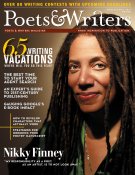1. In an attempt to draw urban-hub-dwelling artists, academics, experts, and autodidacts to community-driven learning experiences, the Public School offers free innovative classes that frequently blend writing, the arts, philosophy, and current affairs. With outposts in Brussels, Helsinki, Los Angeles, New York City, Paris, and Philadelphia, the “school with no curriculum” has helped organize classes such as Handmade Book Creation, Art, and Activism; Texts and Textures: A Writing Workshop; and There Is Nothing Less Passive Than the Act of Fleeing, which featured readings from Ralph Ellison’s Invisible Man and essays by Paul LaFarge and Georges Perec. Anyone can propose a class on each city’s designated Web site ([cityname].thepublicshool.org), and the community is then invited to express interest. Finally, a panel of volunteers helps popular ideas become real-world classes that meet in various venues, from public parks and city streets to galleries and artists spaces.
2. The Web site Flashlight Worthy (flashlightworthybooks.com) features “handpicked” lists of book recommendations that are organized in nontraditional categories such as Off the Beaten Canon, The Top Ten Most Influential Fictional Characters, Creepy Houses That Must Be Explored, Great Books About Magicians or Circuses, Chick Lit Before There Was Chick Lit, and Norman Mailer’s Ten Favorite American Novels. The lists are generated by the site’s creators, Peter Steinberg and Eric Mueller, and by users—all of whom are credited for their contributions. The site also offers a forum for book-related questions (What are good books to read after a breakup? How does one find time to read? Can you help me remember the title of that book about…?), as well as a space to tailor personal reading lists of books featured on the site.
3. Issuu (issuu.com) is a free publishing Web site that allows you to quickly publish e-editions from a variety of sources (PDFs, Word files, Web sites). Once you have uploaded a document—the limit is four hundred pages—you can adjust the accessibility of your publication, making it available worldwide, to adults only, or simply to your network of Issuu friends. Tutorials walk you through how to upload multiple publications, organize files, and embed your publications on a Web site. Readers, who can store and display a limitless archive of titles in a virtual bookshelf, are able to comment on and rate your work, while publishers can track how many people are reading, bookmarking, and downloading titles. Issuu’s current literary offerings include magazines such as Poets and Artists and MiPOesias, book excerpts from small presses such as Caketrain, and public domain titles—plus, of course, all kinds of do-it-yourself creations.









